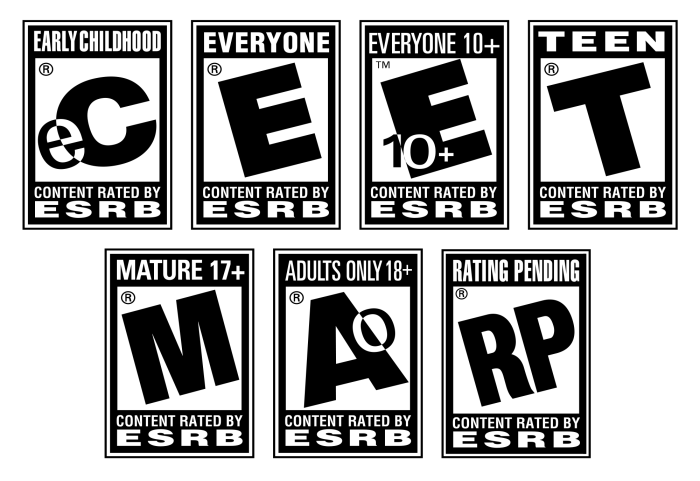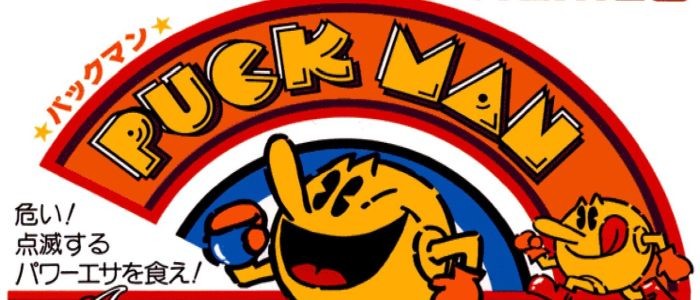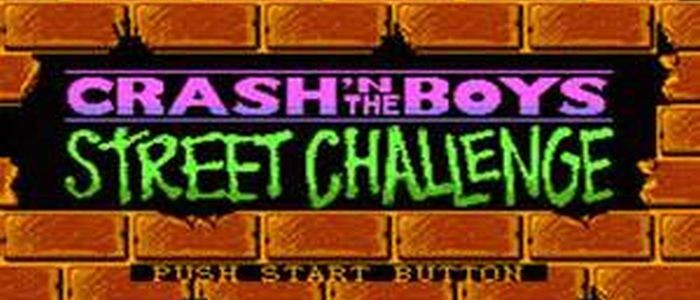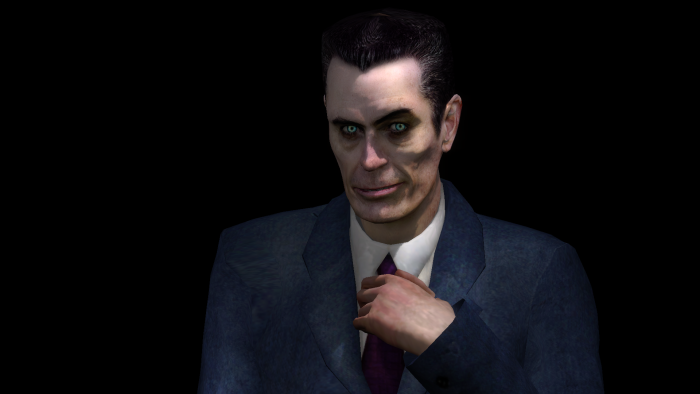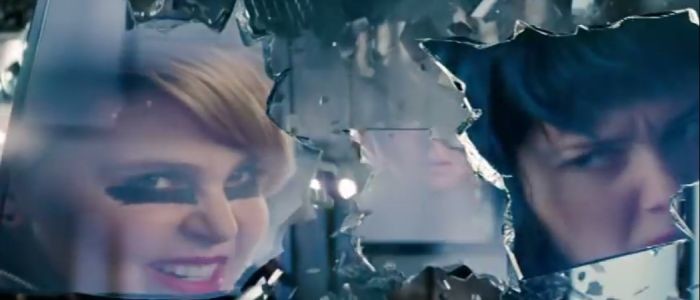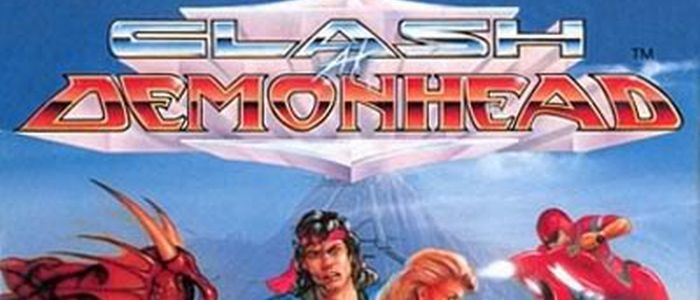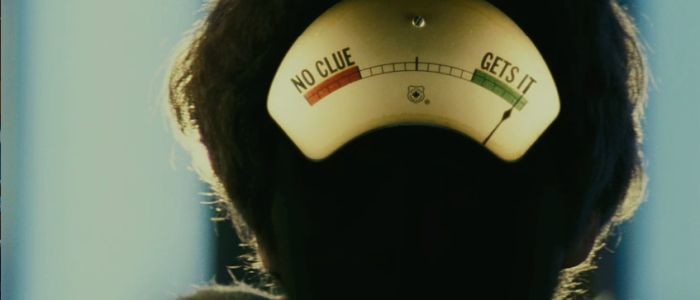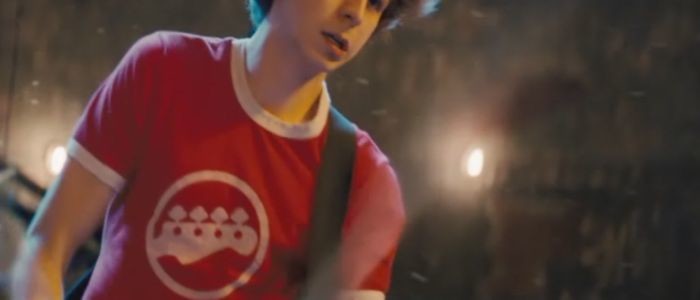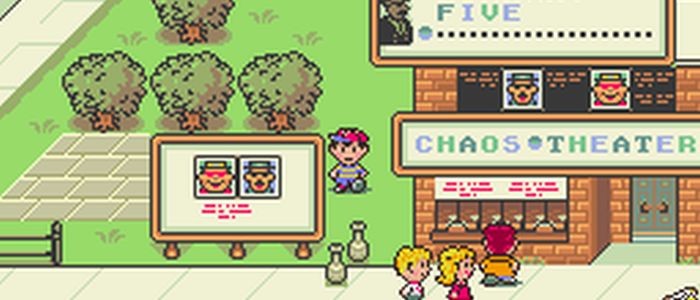Every Video Game Reference In 'Scott Pilgrim Vs. The World'
Scott Pilgrim vs The World is the best video game movie ever made. It's completely soaked full of love for the culture of video games and just absolutely stuffed with iconic sound effects and names and little asides that make gamers nod.
In honor of Baby Driver's release this week, we took a look back at Scott Pilgrim vs. the World, something you should do fairly regularly, and tried to note every single video game reference in the film. There are a lot, but as typical for Edgar Wright, they don't overpower the story. Every sound is there for a reason, and while it adds more substance if you're familiar with the references, the film works just as well if you've never played a game in your life.
The Universal Logo
Right from the start, you know you're in a retro dreamworld, as the pixelated Universal theme stutters into motion, and a chiptune version of the theme song plays. It's got a bit of a Mega Man feel this way and perfectly sets things up for what's to come.
The Zelda Music
After the logo, the film itself starts with the opening music to The Legend of Zelda: A Link to the Past, that classic tinkling piano sound that appears just before the game's logo. That kicks off a scene that's full of Zelda sound clips, such as when Scott's stats pop up on screen and a whistle from Ocarina of Time plays. It gets in some clever references for those diving a little deeper, such as when Scott is talking about his 17-year-old girlfriend and says "She's Chinese," and the Zelda secret music plays. There's also the Zelda fanfare when he opens the door to let Knives in.
While this first scene has the most Zelda music, it's interspersed throughout! The dream sequences feature a cover of the Great Fairy Fountain music.
Stacey's Rated "T for Teen"
Scott's sister Stacey is older than his current girlfriend, but her stats show that she's "Rated T for Teen." That's one one of the ratings from the ESRB (Entertainment Software Rating Board), the MPAA of the video game world which was formed after the outcry of (now-laughably) violent games such as Mortal Kombat and Night Trap. The ratings run from EC (Early Childhood) to AO (Adults Only). "T" games are the equivelant of PG-13 for games, and "can contain moderate amounts of violence (including small amounts of blood), mild to moderate use of strong language or suggestive themes, sexual content, and crude humor." It's appropriate.
Sex Bob-omb
A bit of an obvious one: Scott's band is called Sex Bob-Omb, a riff on the Bob-ombs from the Super Mario series. You're likely familiar with the cute little walking bombs with the big wind-up key in their backs. One amusing thing is that the logo looks a lot like the one from the Serious Sam series, albeit a little happier.
Ninja Ninja Revenge
Puck Man
That ridiculous story that Scott tells Knives (to show off) and Ramona (to show off, which fails) about the origins of the Pac-Man name? It's actually true. The name was originally Puck-Man until someone realized how simple it would be to just scratch off a portion of the P and turn it into Fuck-Man. They changed it to Pac-Man and a legend was born,
Crash and the Boys
What, you thought Sex Bob-Omb was the only band whose name was a video game reference? The first Battle of the Bands sees them going up against Crash and the Boys, which is clearly based on the NES game Crash 'n' the Boys: Street Challenge. It's a sports game that sees you competing in Olympic games on the mean streets, where there are no rules. You can still find it on the Wii/Wii U/3DS Virtual Console.
G-Man
If Scott had played more Half-Life, he might have realized that the elusive G-Man, the record producer whom Sex Bob-Omb is hoping to impress at their gig, is bad news. In Half-Life, G-Man is a mysterious suit that shows up at critical points in the series, always seeming to know what's going on and never revealing what that is. Here, he's just a dickish Jason Schwartzman playing Gideon Graves, the last of Ramona's evil exes.
Street Fighter: The Movie
The first fight against Matthew Patel kicks us off into Street Fighter territory. We have the first moment where two people face off on a 2D plane with a VS. in-between them, and Scott defeats him with a Shoryuken. There are reversals, combos, and an echoing announcer during the slow-motion finishing blow. When Roxy and Ramona fight, the panes of glass that shatter during their battle slow down mid-air and look like the character selection screen from the game.
Later on, when Scott finally defeats Gideon, the announcer's "K.O.!" seems ripped right out of Street Fighter Alpha 3, and makes us wonder why it's not used for every single knockout blow ever landed.
Final Fantasy II Boss Music
After his breakup with Knives Chau, Scott shows how traumatic the experience was for him by excitedly showing his band members that he's learned the bass line from Final Fantasy II. It's an excellent riff, but video game purists likely balked at Scott's line here, since the game is technically Final Fantasy IV. Since it was first released in America as Final Fantasy II, we'll let him get away with it. (Also, Final Fantasy III was actually VI. It wasn't until FFVII our worlds finally came together.)
Clash at Demonhead
What, you thought Sex Bob-Omb and Crash and the Boys were the only bands who names were video game references? Yes, Scott's evil ex is also in a band named after Clash at Demonhead, aka Dengeki Big Bang! A NES platformer that's a riff on Metroid, it too features seven boss battles and a man trying to save the girl. Fittingly, it's the first game that Scott Pilgrim creator Bryan Lee ever played.
Lucas Lee: Pro Skater
Skate or die? Lucas Lee dies thanks to some Tony Hawk grinding, in which he tries to keep a combo going longer and longer to get all of those sweet points and bails at the very end. This reference is a lot more defined in the graphic novel, where Scott has to play Tony Hawk Pro Skater to prepare for the Lucas Lee battle, but here he manages to out-skate him anyway. No one can out-act Chris Evans in this role, though.
Gotta Go Fast
Along with Zelda, there are a ton of Sonic sound effects used throughout the film, most obviously when Scott goes from "No Clue" to "Gets It" on the Ramona/Roxy relationship – note the ringing "Zone Cleared" sound effect when it pops on screen. Another ring sound effect plays when he confronts vegan Todd Ingram, and all of the coins that drop from the evil exes certainly could be more Sonic references. But coins dropping from defeated enemies is a near-universal trope, so we can't claim the blue hedgehog's influence on that one.
Bass Hero
Scott's shirt is clearly the logo of the bass guitar from Harmonix's Rock Band series, or as you might all know it, the greatest music video game of all time. It's surprising that more bands don't ironically wear their instrument logos on their shirts.
Roxy Richter Belmont
Roxy Richter's last name calls to mind the heroes of the Castlevania series, the Belmonts. Richter Belmont is the hero in Rondo of Blood and true to his vampire-killing lineage, he wields a whip. So Roxy does too, but her whip is more of a sword, of the style that Ivy from the Soul Calibur series carries.
It's a perfect game weapon, and her weak spot is very video game-esque, as well. Only one touch destroys her. The only way it could have been more perfect was if it were a giant glowing red spot, although that would have given Scott even more questions to ponder on his road to enlightenment.
Double Dragon Twins
While the graphic novel shows that the Katayanagi twins are supposed to be plays on Jimmy and Billy from Double Dragon, their polished look here is quite different, and they don't get to do any head-on fighting. Still, the references lives on when they fight Sex Bob-Omb in their battle of the bands and summon...you got it...double dragons.
When the duo is defeated, the speakers blast out and form a Tetromino, or Tetris piece, and Scott earns 1-up that's his floating head, as is typical of many 8-bit and 16-bit platformers.
The Chaos Theater
The Chaos Theater may be owned by Gideon Graves in Scott Pilgrim vs the World, but older gamers might know it as being owned by one Mr. Poochyfud. That's the owner of an establishment of the same name in the classic Super Nintendo RPG Earthbound. Our heroes run across it and find out that a Blues Brothers-style band called Runaway Five is forced to work there, night after night, due to a $10,000 debt, similar to the way Sex Bob-Omb is being forced to play for Giden. In Earthbound, you and the other neighborhood kids eventually get a wad of cash to help pay the debt and continue your adventures, but the important takeaway here is to never visit a theater named after chaos.
Nega Scott
The evil version of Scott Pilgrim, complete with shadowy clothes and eyes burning red, is a clear take on evil doppelgangers such as Evil Ryu or Dark Link. Of course, while Evil Ryu and Dark Link fight you to the death, Nega Scott seems just as doofy and awkwardly lovable as regular old Scott.
“FINISH HIM!”
Scott's roommate Wallace was on the fence about Gideon and wants Scott to move on, until he hears Giden talk on the phone. That prompts Wallace to yell the above phrase. One would only hope you know what game he's referencing, although sadly Scott doesn't get to rip Gideons spine out of his back.
Scott Pilgrim vs the World: The Game
Perhaps the best example of how perfectly tuned into video game culture the graphic novel and film are is how it made the transition to video games without a hitch. A side-scrolling beat'em up that owed a lot to River City Ransom, it allows four players to play through the story together in a super-deformed and wonderful parody of classic games. Or at least it did, until it was unceremoniously pulled from the Xbox Live Arcade and PlayStation Network stores at the end of 2014, apparently due to an expired license. If you had purchased the game you can still download it, but otherwise there isn't any way to get the game any more. It's fairly insane, as it's a really great title and Bryan Lee O'Malley wants to get it re-released. Let's hope they make that happen.

